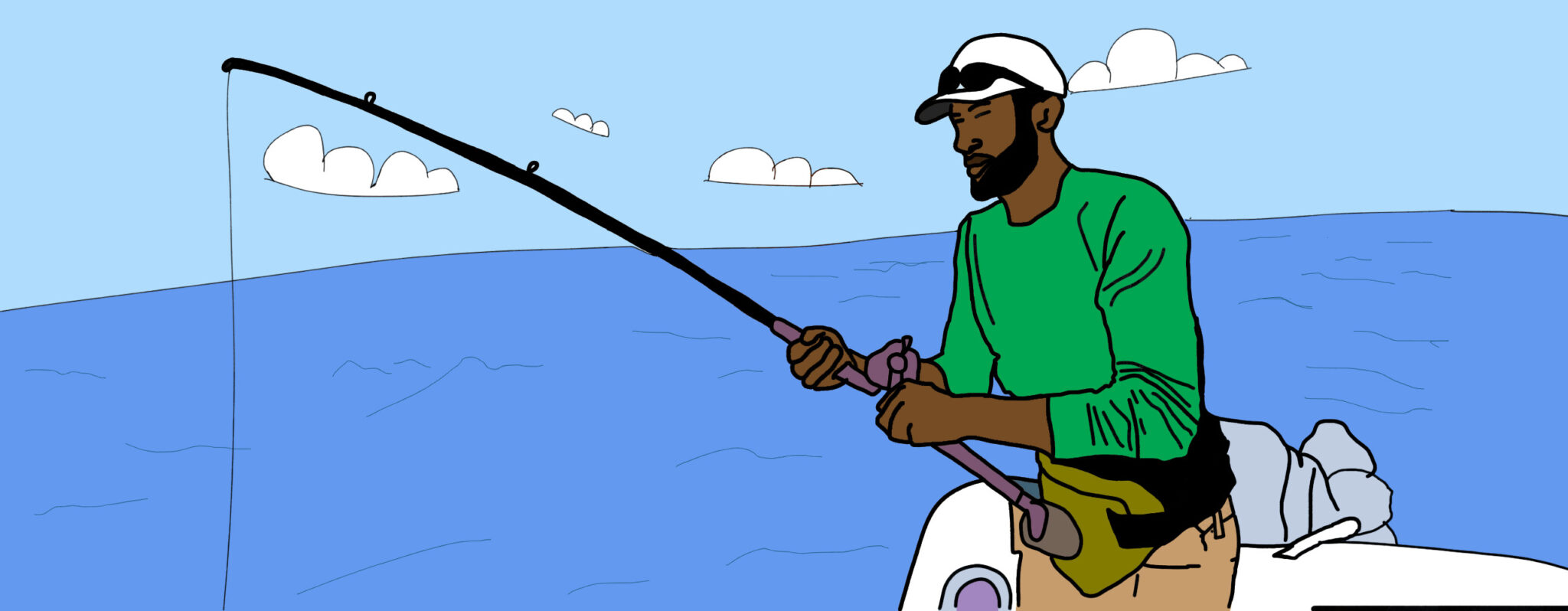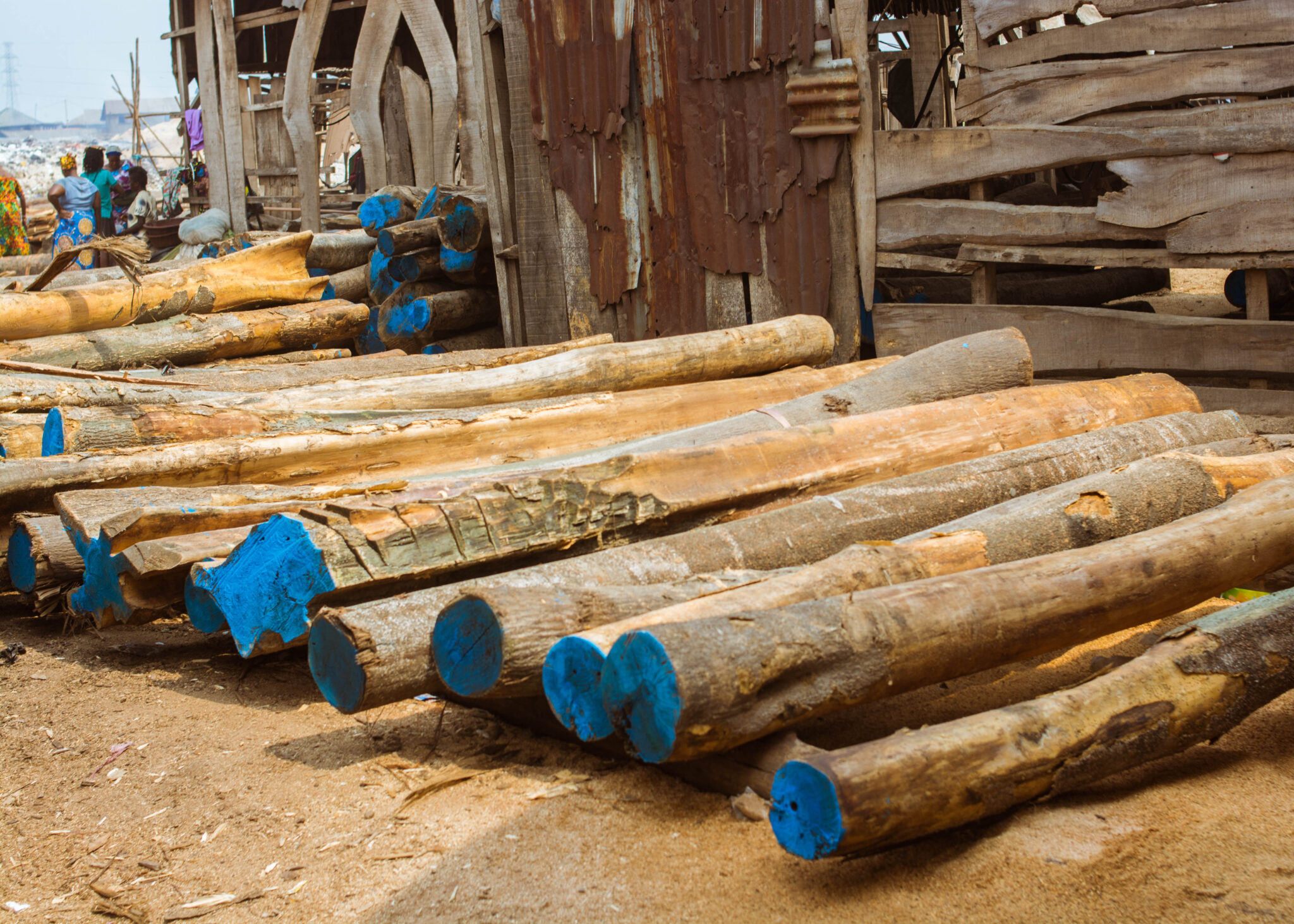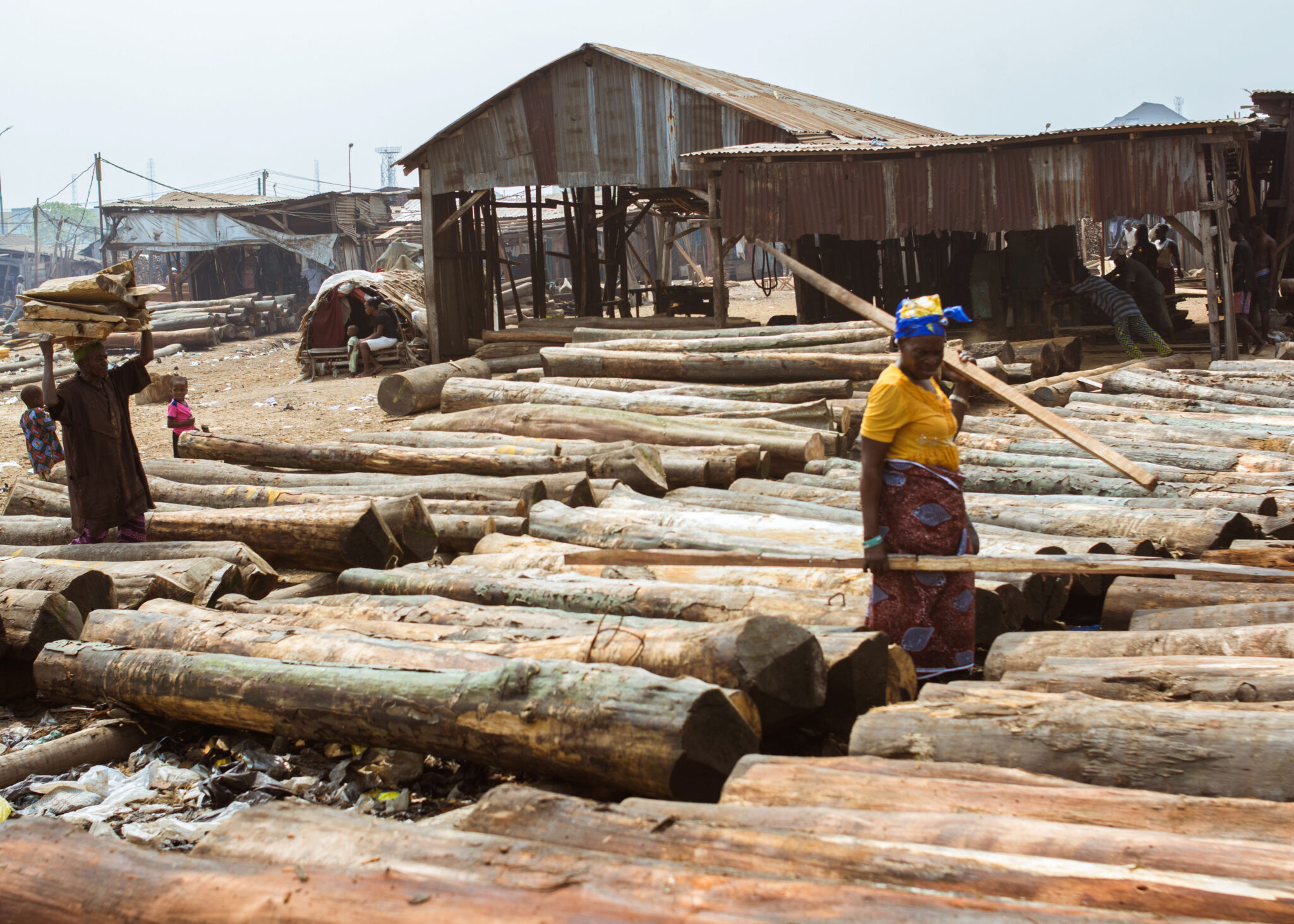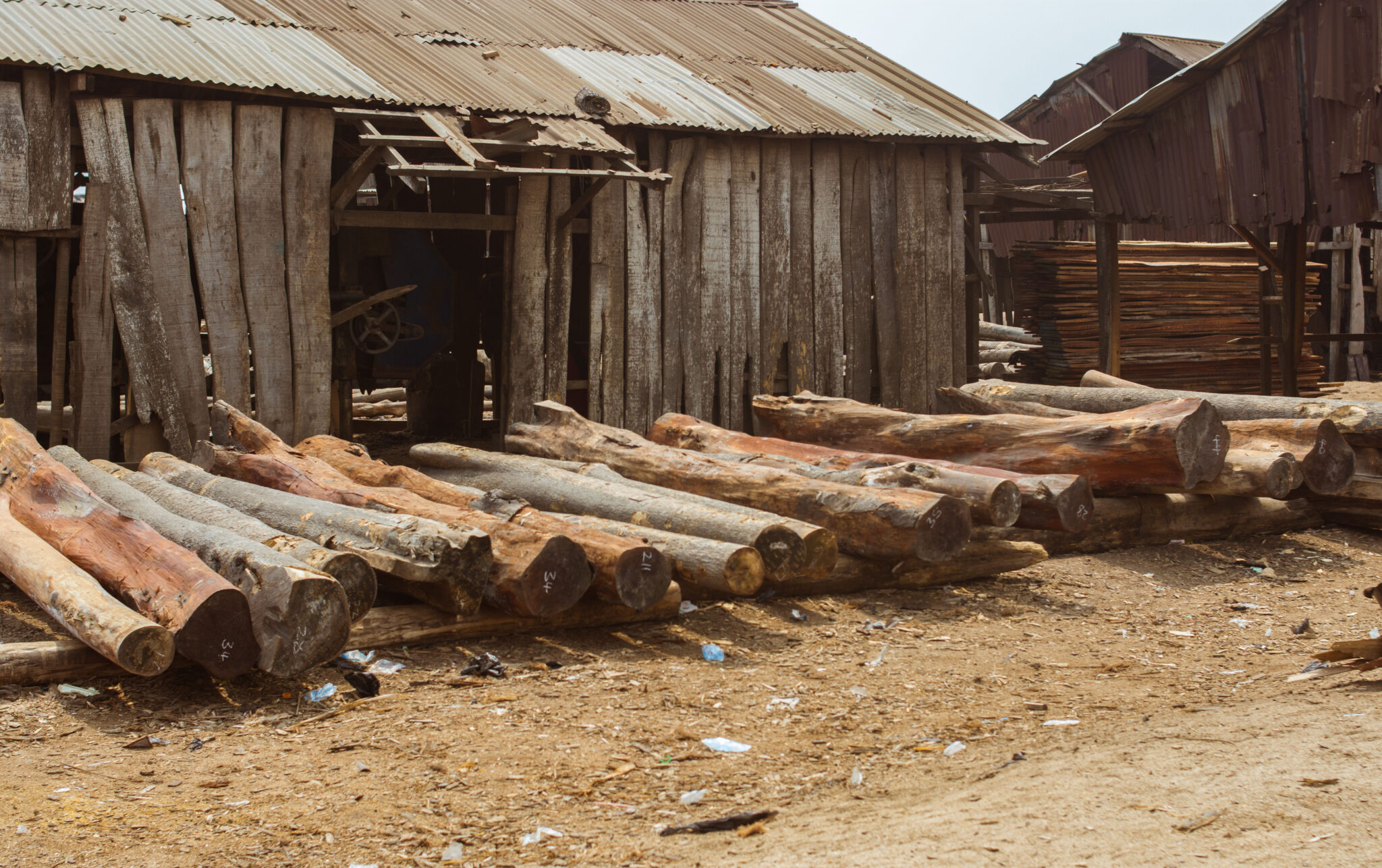Fishermen are one of the most hardworking people we have ever spoken to. The job is very dangerous in addition to being arduous– they battle extreme cold and treacherous winds while sailing deep into the ocean. It is hence a big shock how little they earn. Having money to buy a refrigerator is almost a life-changing investment. While working on the interviews, one of the fishermen, a Ghanian, has quit to work as an interpreter for a Chinese businessman in Accra. Another has significantly improved his income- he met an events planner that he supplies directly.
Working Lives: The Fisherman Who Dreads Dangote Refinery
“My parents could afford to send me to the university, but I knew I wasn’t cut out for that. I have no regrets. I was very attracted to fishing.”
Ayodele Emmanuel
Please, tell us about your background
I am from a family of six. My dad is a mechanic who specialises in fixing Toyota cars. I got in to the fish business through my mother who sells fish. I used to help out attending to customers in her shop in Badagry. As a child, I was drawn to the fishermen who sold fish to her. I gradually understood how the business works. At around the age of fifteen, I started to go fishing with the men. From time to time, my mother paid them a bit of money for teaching me how to fish. My parents could afford to send me to the university, but I knew I wasn’t cut out for that. I have no regrets. I was very attracted to fishing. By the time I was 22-year-old I was working on my own as a fisherman. I also sell fish. I move around the major markets to sell – Badagry, Lekki, Makoko and even Epe. You have to study where the market is most vibrant at any moment.
How far do you go to fish?
We go about 20 nautical miles south of Lagos, which is about 37 kilometers. It takes us around one hour to get to the pelagic zone – this is a very deep area of the ocean that is abundant in fish. You find species like Swordfish, Mackerel, Yellowfish, Tuna, Shad (known as bonga), Croaker, Tilapia, Longfin Pompano, and Catfish in these waters. We also find rare species like the Barracuda. Sometimes, we even see baby whales. The Lekki lagoon used to be a fisherman’s paradise; you did not have to sail very far to find valuable fish. But the lagoon is being slowly depleted by construction projects, the biggest of which is the Dangote oil refinery. The refinery is built on the lagoon. A lot of sand was dredged from the coast to fill the lagoon for the construction of the refinery. A conservationist came one day and told us that the sand-filling was changing the local ecosystem. So we now have sand where we used to have water and fish. Now, we have to travel further into the ocean to fish. This is more dangerous as you cannot tell when the waves become too strong and create storms. The refinery and other projects have changed the ecosystem of the coastal towns and communities around the Lekki lagoon. Many of the fishermen are finding ways to adjust. Rather than go far out deep into the sea to fish, they are making money by taking tourists around on their boats. Some of them have invested the money in introducing non-native species such as Bayard, African Arowana, and Grunts. These are now mainly the species we find in waters around these days.
How have you coped with changes in the ecosystem?
When the industrial projects began, I and others lost the dams we had made to catch fish. Development in the area has come at a personal cost. I have a family of four to feed, so I go deeper into the lagoon to fish. This takes us to other communities. You have to travel two or three hours and you still don’t catch fish as we used to. I also supplement my income by taking tourists around in my boat. I make at least N5,000 from this daily.
How many times do you sail out to fish?
I used to go to the sea 2-3 times in a month. Now, I go about five times. The fish market is controlled by the sellers, mostly wives of fishermen turned brokers. I have learnt to work closely with them, so I am in a better position to predict demand. Whenever I see that there is demand to fulfil, members of my crew and I raise between N150,000 and N300,000 for a fishing trip. When the sellers ask for a lot of fish, we need to raise more money because we spend more time on the sea. The refinery has led to a fourfold increase in the price of fish since 2015. Fish is becoming a luxury. Not only here in Lekki, but also in Makoko and Badagry. We have to spend more time to catch fish. The fish we catch is getting smaller. Some naturally occurring species such as the African threadfin (Galeoides decadactylus), the Senegal jack (Caranx senegallus), the West African Ladyfish (Elops lacerta) and Blue Mussels are disappearing. These are species which fetch higher prices in the market. We no longer see Titus fish (Mackerel). Sharks, Silver catfish and others that seasonally wander near the Lekki Lagoon from the deep ocean are totally gone. All this is putting enormous strain on our source of livelihood. Fishing is all we know how to do. In the recent past we used to have a bountiful catch after sailing a bit. The government isn’t helping the situation at all with the spate of mega construction projects it is promoting; high-rise buildings are springing up in waterfront communities. More than 30,000 people have been displaced, reducing the number of people able to fish and farm in Lagos’ waters. In 2017, Otodo Gbame, a fishing settlement, was razed for another mega project. This community specialised in shrimp and prawn farming. After it was destroyed, Lagos now depends largely on imported prawns and shrimps. It is over for us when Dangote Refinery starts operation. An accidental oil leak will turn all the Lekki Lagoon into Ogoniland. What are we going to do? How are we going to feed our families?
How is the side hustle going?
The tourists do not pay us a lot of money, but it is making a big difference. My specialty is big fish, but like I have mentioned it’s getting very tough to catch this. You now need to sail far, really deep into the ocean. Even when you face the risks, you are competing with bigger and better equipped foreign boats. The major boat I use has even developed technical problems and I don’t yet have the money to fix it. We tell the tourists the history of our communities and take them on the water in our canoes. They enjoy taking pictures of the environment. I am saving the money to create my own fish farm; I am going to breed new species that yield faster.
What do you spend on?
My rent is N200,000 per annum. I live in Yaba. I make about N150,000 in a month from fishing, renting my boat to tourists and also serving as a tour guide. I save N50,000 every month for expenses such as my annual rent, children’s school fees, clothing etc. We spend N20,000 on buying foodstuff for the house. My wife is our family accountant; she makes the spending decisions and tracks our expenses. I really wish she was here to give you the details of our expenses.
Also Read: Working Lives: The Fisherman Who Wants to Meet More Event Planners
What are the dangers you face when you go fishing?
Storms. It could be cool and calm this moment, then next minute the waves turn violent. But usually, we can tell that the waves are too strong before we depart. The kind of boats we use are not built to withstand the very strong wave that could break out when you sail deep into the ocean. God forbid, if the boat capsizes, that is the end for everyone.
Are you planning to leave fishing for something else?
No, I do not plan to do anything else.






















